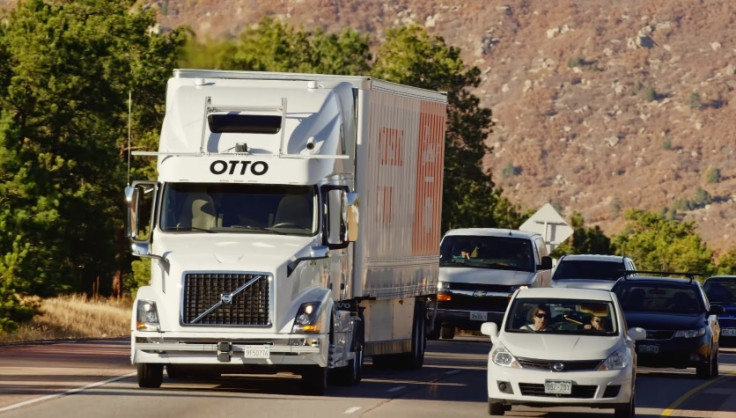Is Uber's self-driving truck company operating without a licence?
Uber-owned Otto is testing autonomous trucks on public roads in California, but doesn't have a licence.

In late 2016 Uber's fleet of self-driving cars was forced to leave San Francisco, where they had begun testing on public roads just days earlier. Despite the cars having a driver, they were seen by the Department of Motor Vehicles (DMV) as autonomous and needed a $150 (£119) permit to share the streets with regular traffic. Instead of paying, Uber relocated its fleet to Arizona.
Now, less than two months later, it is Uber's autonomous truck division which appears to be violating California law. Otto, a company developing self-driving trucks and was bought by Uber in August 2016 for $680m, has been testing on public roads in California since January 2016.
Otto claims it does not need an autonomous permit because the trucks only have the same self-drive features as cars on sale to the public, like adaptive cruise control and automatic emergency braking. But it has now come to light that the vehicles are doing much more.
Documents obtained by Car and Driver via a public records request quote an Otto software engineer who describes the truck technology as a "self-driving system" which operates in "self-driving mode". The documents claim Otto's trucks are testing on roads surrounding San Francisco "on a daily basis". Otto also failed to register its vehicles with state regulators in Nevada when it ran tests on public roads near Las Vegas.
Promotional video used by Otto to show off its technology shows the trucks on public roads with no one in the driving seat, but it isn't clear if these demonstrations took place in California or not. One video shows an Otto truck delivering 45,000 cans of beer in Colorado.
The document also refers to "disengages", a word commonly used to describe the moment when a human must unexpectedly take control of an autonomous vehicle to stop it making a mistake.
Jessica Gonzalez, a spokesperson for the DMV, told the publication: "Otto has assured the department that their trucks are not capable of operating in autonomous mode in California. We will look into it further."
'I think someone should be in jail'
John Simpson, privacy director at Consumer Watchdog, a nonprofit which tracks the testing of autonomous vehicles on California roads, believes the document shows Otto is breaking the law.
"It seems obvious Otto is following the renegade and illegal practices of its parent company in testing self-driving technologies in california without a permit. This is the same thing as driving without a licence, and the enforcement folks should be pursuing this with vigour. I think someone should be in jail."
The DMV is now "looking into" the issue, while Otto believes it does not need the licence because it is testing "driver-assist" technologies, not a "self driving system", despite the documents referring to exactly that.
© Copyright IBTimes 2024. All rights reserved.






